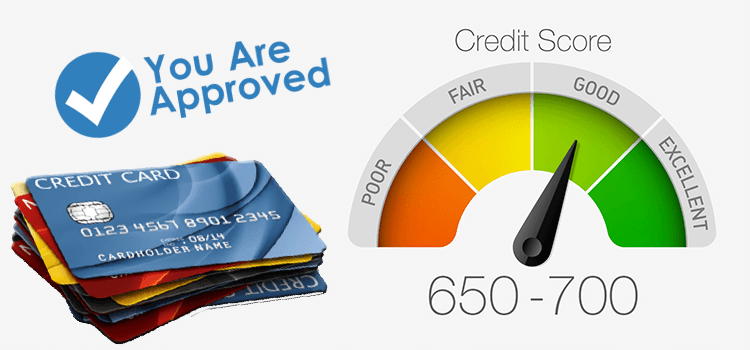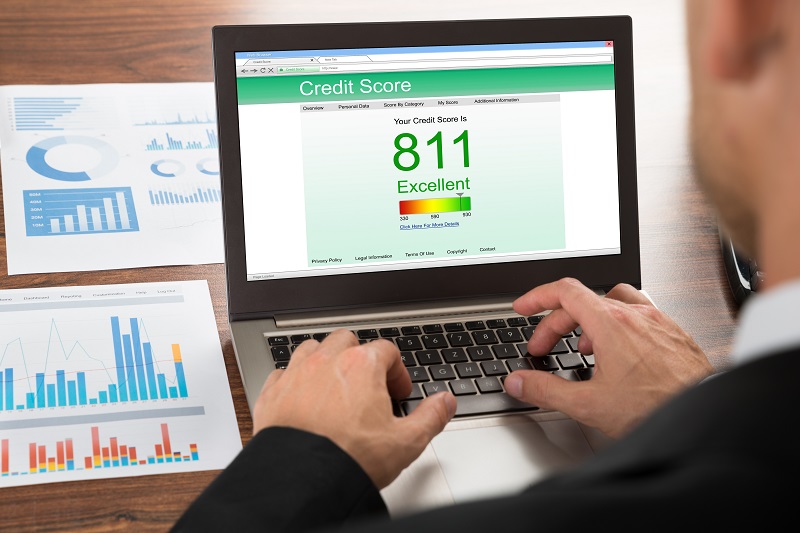One of the biggest ironies of credit building is that you need credit to build credit. According to a report released by the Consumer Financial Protection Agency (CFPB), more than 26 million Americans are “invisible to credit” and more than 19 million are “unchangeable”.

When you want a line of credit or a loan, the creditors or lenders will judge your risk level based on your credit score. This is the only way they can understand your financial behavior since they don't know you on a personal level.
Your credit history will influence your credit score. The lowest score you can get is 300 and the highest is 850. You'll want to aim for higher than 750 because that will indicate you have excellent credit. Anything under 600 indicates you have poor credit and are a big risk.
If you are unhappy with your credit score and you want to do something about it, there are certain steps you can take to turn it around. Below are 10 strategies that you should try if you want to increase your score. Once you are successful, you can easily get approved for higher limits on your credit cards and lower interest rates on your loans.
1) Make Your Payments on Time
If you pay your monthly bills on time, this is the best way to increase your credit score. When the 3 credit bureaus review your credit report, they use your payment history more than anything else to calculate your credit score. Payment history affects your credit score by 35%.If you are late on your payments, it will negatively affect your credit score. You could be late by just a couple of days and it will still have a bad impact on it. To ensure you don't forget to pay, create reminders for yourself before the due dates of the bills.
In the old days, people used to write out their due dates on a piece of paper or a paper calendar. You can do that, or you can use a smartphone budgeting app to help remind you.
2) Make Bigger Payments
The minimum payment owed per month is usually small. You should get in the habit of making bigger payments toward your debt balance each month. That will benefit you in many ways. Not only will you pay your debt off quicker, but you will lower your total debt and the interest that goes along with it.If you have multiple credit cards or other debt balances, it is a good idea to have only 1 account with bigger payments made on it. All your other accounts should just have the minimum payments made on them. This will eventually clear out the balance on that 1 account faster. Then you can move on to the next account and do the same thing.

3) Focus on Clearing Your Debt
Your credit score is also determined by your total debt amount versus your total available credit. The available credit is called the open credit utilization rate. You don't want to be close to your credit card limit. Utilization is in regard to the total credit you have available. It factors the percentage of available credit on each credit card that you have and the total percentage of available credit. Your utilization ratio is what creditors and lenders look at closely. If your utilization rate is high, then it looks like you won't be able to pay on your debt. This will lower your credit score. On the other hand, if your utilization rate is low, then you should have a high credit score because it makes you a lower risk. For instance, let's say you have a $20,000 credit limit on your credit card. If your balance is $3,000, this would be considered good. Then your credit score will be higher. The type of account that you owe money on will also play a factor in your credit score calculation. Like if you owe $100,000 on a home mortgage, that is no big deal. But if you owe $100,000 on a credit card, then it is a big deal.4) Review and Update the Inaccuracies in Your Credit Report
Occasionally, you should review your credit report and check it for accuracy. Make sure its information is up to date. This will do wonders for increasing your credit score. Fair Isaac Corporation is the organization which gives different financial institutions the model for the credit score. They determined the United States median credit score is 695. About 50% of U.S. credit reports contain credit scores that are higher than 695. The other 50% is lower than 695. You can generate your credit report in a number of different ways. Online credit reporting services are the easiest way. They offer both identity theft protection and credit monitoring services too. Anytime you request a copy of your credit report, you need to be cautious. Don't end up purchasing services which are unnecessary. Remember that under federal law, the 3 main credit bureaus must provide you with 1 free copy of your credit report per year if you request it. This can be done on www.annualcreditreport.com. You can also view your credit report for free if you're on welfare, unemployed or there are inaccuracies on your report. If you've requested credit from a creditor or lender within the last 60 days and it was denied, you can receive a free credit report within that time period too. After you obtain your credit report copy, review it thoroughly for mistakes. If you find any information to be wrong or inaccurate, contact the credit bureau right away and report it. If they agree with your claim, then the mistake will be removed from your report. But if you don't report it at all, this mistake could damage your credit score and your ability to receive credit in the future.5) Lower Your Debt-to-Income Ratio
The amount of monthly debt payments you need to make versus your total monthly income is your debt-to-income ratio. This is how lenders and creditors get insight into your ability to pay your debts and manage your income per month. To calculate DTI, your total regular monthly debt is divided by your total regular monthly income. If the ratio is low, then it means you have a healthy amount of income to pay your debts each month. But if you have a high DTI ratio, it tells lenders that your debts exceed your income each month. This obviously makes you more of a risk to lenders. You can lower your DTI ratio if you pay down your debts. It will increase your credit score too.
6) Have Some Debt Variety
You can increase your credit score by having different types of debts that you're paying on. For instance, if you have a home loan, bank credit cards, gas station credit cards, and a car loan, this is a lot of debt variety that will boost your credit score. According to FICO research studies, a credit report with many different credit types will make them seen less risky to lenders. But if a report shows just one credit type, it is seen as more of a risk. For instance, if your total debt is $200,000, it should be divided amongst things like car loans, mortgage loans, and credit card loans. If this $200,000 debt is all from credit cards only, then it is bad for your credit score. Credit types have a 10% influence on your credit score.7) Hold onto Your Credit Cards Always
Credit history influences your credit score. If you have a long history with your credit cards or loans, that will help your score a lot. It tells lenders that you can be responsible with credit over a long period of time, assuming you have made your payments on time. As a result, they will be able to trust you more with their money too. If you can maintain your credit card accounts, regardless of whether you're actively using them, then you can keep your credit history strong. If you end up closing your credit card accounts, it will actually decrease your credit score because it lowers your credit history with those accounts. On the other hand, if a credit card account has an annual fee that you don't want to pay, then you should cancel the card for sure.8) Set Limitations on Credit Requests
Don't apply for too much credit that you don't need. Whenever you submit an application for new credit, a hard credit inquiry will be done on your credit report by the lender. These inquiries can lower your credit score, especially if too many are done within a short period of time. However, there is also something called a soft credit inquiry which does not affect your credit score. The type of inquiry that is done by the lender will depend on the credit or loan that you're requesting. The following loan and credit requests will result in a hard credit inquiry:- Car Loan
- Home Loan
- Personal Loan
- Business Loan
- Credit Card
- Student Loan
The following will result in soft credit inquiries:
- Getting Prequalified for Credit
- Background Checks for rentals, employment, etc.
Hard credit inquiries require your permission. Soft credit inquiries do not.
9) Obtain Authorization to Use an Account
If you need to increase your credit score, you can have someone else make you an authorized user on their credit card account. As an authorized user, the payment history on the account will show up on your credit report. If this is a positive payment history, then it will be reflected in your credit score. On the flip side, if the payment history is bad and the account holder becomes delinquent, then it will negatively affect your credit score and theirs. That is why you need to be able to trust the account holder to pay their bills. If they have a high utilization ratio, then do not partner with them. There are definitely risks involved with becoming an authorized user of a credit card. But if you are struggling to increase your credit score on your own, this is a great way to do it. Just choose an account holder that you know pays their bills on time every month and you should be fine.10) Know the Bottom Line
If you find out your credit score, you can make better financial choices. You will know which credit products are best for boosting your credit. Then you can maintain a high credit score by regularly reviewing your credit report to see if there are any inaccuracies in it. If you know your credit score, you will be able to predict if a creditor or lender will approve your application or not. You can also predict what your interest rate is going to be.Where to Begin
You won't increase your credit score in a day. This will be a timely process because it involves creating a positive payment history on your credit report. The sooner you start being more financially responsible, the sooner your credit score will increase. There is no quick fix solution to boosting your credit score. You need to develop a good plan for satisfying your debt obligations.
Conclusion
Most people depend on having good credit and borrowing money from lenders. To have a healthy financial life, you need to sustain a high credit score and establish a healthy credit history. This will enable you to borrow money in the future when you need to.



